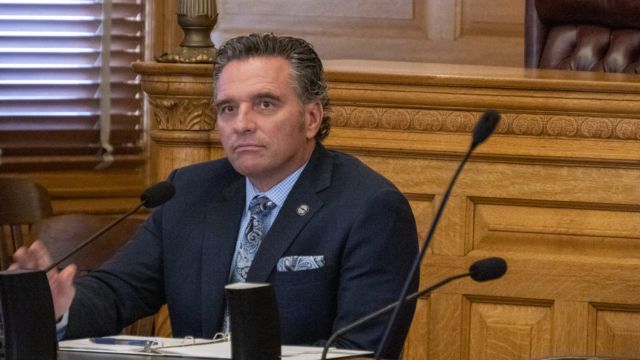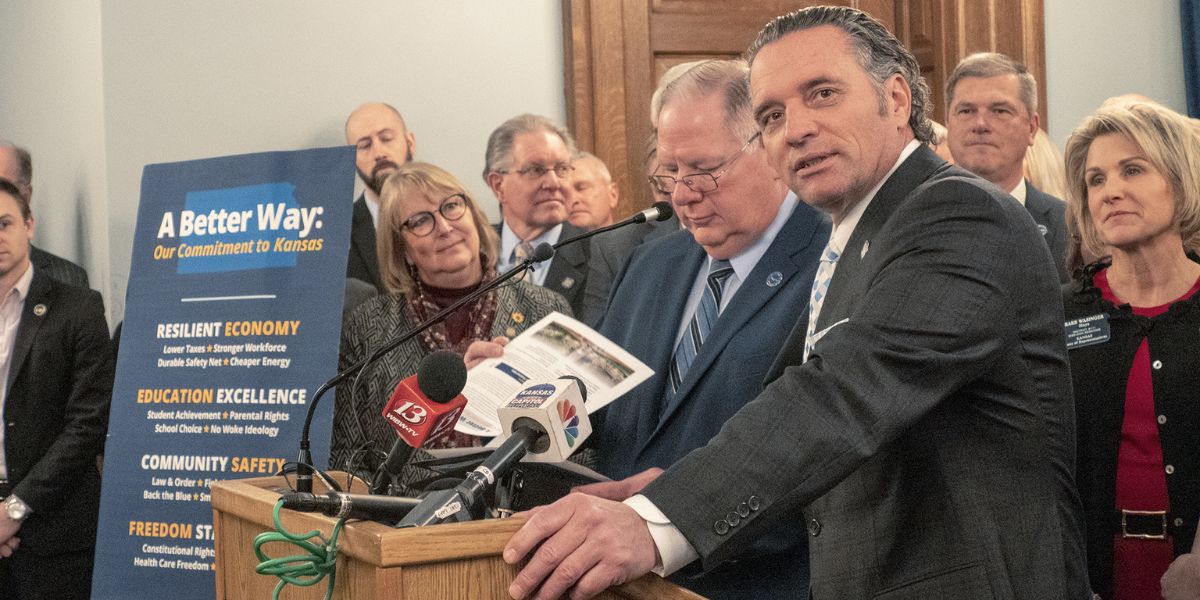A bill banning health professionals from giving gender-affirming care to children was enacted by the Kansas Senate with a bipartisan supermajority. The law will be enforced statewide, and those who violate it will face civil, financial, and regulatory penalties.
The proposal was likely to be approved and forwarded to Governor Laura Kelly after the Senate voted 32–8 on Wednesday to send it to the Kansas House. Last year, the Legislature failed to muster the two-thirds majority needed to override the Democratic governor’s veto of a similar law.
The Help Not Harm Act was required to protect children, according to Senate President Ty Masterson, a Republican from Andover. He claimed that procedures, puberty blockers, and other treatments went against a doctor’s obligation to protect their patients.
“A supermajority of the Kansas Senate took a firm stand in support of helping and not harming children by making it clear that transgender ideology and the mutilation of minors is no longer legal in Kansas,” Masterson stated.
According to Masterson, “courageous men and women who have spoken out against the harm these procedures are causing our children” should share the credit for the legislation’s advancement.
“This bill is extreme.”
The law was a component of a multi-year push in Kansas to prohibit gender-affirming care for those under the age of 18. The decision to seek treatment for a disorder known as gender dysphoria, in which a person experiences distress because of a mismatch between their biological sex and gender identity, was politically rejected by Kansans.
Medical and health organizations cautioned about the negative effects of cutting off youth care. The bill’s opponents said that it was absurd to include in the statute the possibility of civil penalties and license suspensions for professionals operating within their field of practice.
A constitutional challenge could be made to such a law. Based on an examination of the Bill of Rights in the Kansas Constitution, the Supreme Court of Kansas upheld the right to abortion because it believed that Kansans have a fundamental constitutional right to bodily autonomy.

In the Senate, eight out of nine Democrats voted against the bill. The veto-proof majority was strengthened by the backing of Sen. David Haley, a Democrat from Kansas City, Kansas, while all 31 Republicans voted in favor of the bill.
A failed amendment proposed by Sen. Cindy Holscher, a Democrat from Overland Park, would have permitted kids taking medicine associated with gender-affirming treatment to continue taking it after a deadline of December 31, 2025.
“This bill is extreme and expands far beyond a ban on certain kinds of health care,” Holscher stated. “This bill inserts politicians into highly personal, private health care situations and that is against the values of Kansans.”
To further the anti-transgender agenda, identical legislation were submitted in both the House and the Senate. House Bill 2071 was introduced by Republican Representative Ron Bryce of Coffeyville, while Senate Bill 63 was introduced by Republican Senator Renee Erickson of Wichita.
Public hearings on the measures were held by committees in both houses, but the Senate as a whole took action first. The House could either concur with the Senate to expedite the bill’s passage to Kelly or proceed with Bryce’s plan, which would be subject to change.
The governor would have ten days from the time it formally reached her desk to decide whether to sign it, veto it, or let it become law without her signature.
According to Kelly (2024), Kansas shouldn’t follow around two dozen other states that have restricted or outlawed gender-affirming care for adolescents because doing so violates parental rights and only affects a small portion of the state’s population.
Federal Court Temporarily Stops Trump Administration’s Freeze on Grants and Loans
Kelly’s veto letter stated, “Voters do not want politicians to get between doctors and their patients by interfering in private medical decisions.”
In response to her veto, Republican House Speaker Dan Hawkins of Wichita said she would “find herself on the wrong side of history.”

If Kelly obstructed legislation that would put a “end to this extreme practice within our borders once and for all,” Senate President Masterson promised to overrule her.
Senate Bill 63 would establish a legal cause of action for cases against medical providers who perform gender-affirming surgery or chemical treatments on adolescents.
Ten years from the patient’s eighteenth birthday would be the statute of limitations for such cases, according to the legislation. The bill would prohibit damages associated with these lawsuits from being covered by professional liability insurance.
The bill would limit the use of public funds to support gender transformation. It would permit health professionals who provide forbidden gender-affirming care to face professional disciplinary repercussions.
The treatment would have to be gradually reduced and stopped by December 31 if a doctor supplied medications to a minor that were later outlawed.
The bill was pushed on the Senate floor by Eudora Republican Sen. Beverly Gossage, who hypothesized that 80% of children seeking gender-affirming treatment had PTSD, eating disorders, melancholy, anxiety, autism, ADHD, or some other type of trauma.
Trump Signs Laken Riley Act, Launching Next Phase of Immigration Crackdown
According to her, many people who sought the treatment had experienced sexual abuse.
Three-fourths of these patients were female and “often influenced by social media,” according to Gossage, the Senate Public Health and Welfare Committee’s chair.
She claimed that doctors and mental health specialists were pressing young people to accept medical intervention, which may start with puberty blockers and lead to surgery.
Minority Leader Dinah Sykes, D-Lenexa, sponsored an amendment that would have let mental health providers, including as school counselors, to help children who are struggling with gender issues, but the Senate rejected it.
Haley, the bill’s sole Democratic sponsor, proposed an amendment to the Senate that would have lowered the bar of medical independence from 18 to 14 in order to grant a person the right to gender-affirming care.
Similarly, an amendment that would have fixed the age of medical independence at 16 was redirected by the Senate.
Sen. Tory Marie Blew, a Republican from Great Bend, questioned her colleagues about the legal drinking age, voting age, and tattooing age.




